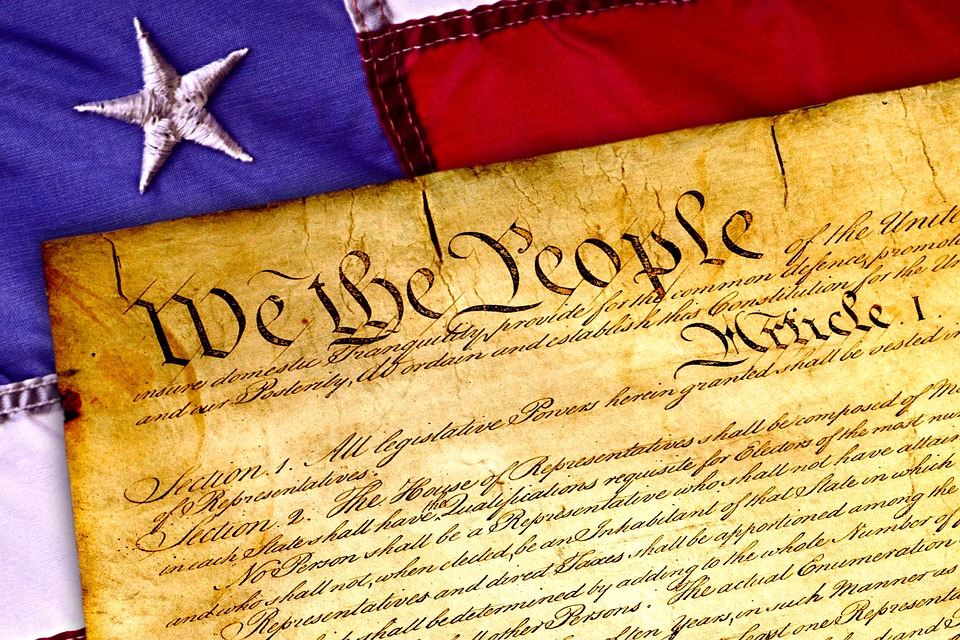
Advertisement
There is a political movement afoot that is decades in the making and has been taking place largely in the shadows, but will nonetheless have a profoundly positive effect on our constitutionally guaranteed rights and freedoms, if it successful.
In 1975, Rep. Larry McDonald, D-Georgia, took to the House floor to discuss the slow erosion of freedom and liberty Americans had been suffering for years. Besides the loss of constitutional protections, Americans were being pickpocketed by a growing, invasive and debt-ridden federal government.
“The marvelous, highly productive economy, of which he is a part, once free, is now grinding to a halt under the massive weight of Government controls. Decisions that were once his to make—the kind of food he eats, the kind of car he drives, how and where his children are educated—are now being made by Government bureaucrats,” said McDonald, as reflected by the Congressional Record.
As you may have guessed, things have only gotten worse in the 40-plus years since. The federal government now controls or influences every aspect of our lives, along with every function and aspect of business. Federal rules and regulations cost the economy trillions of dollars each year, depriving us of hundreds of thousands of new jobs and opportunities.
And the regulatory burden has really accelerated since 2000, with the addition of several new agencies.
But McDonald did not take to the House floor merely to point out how bad federal encroachment had become; he also offered a solution: The Liberty Amendment, which has four basic elements:

Sec. 1. The Government of the United States shall not engage in any business, professional, commercial, financial or industrial enterprise except as specified in the Constitution.
Sec. 2. The constitution or laws of any State, or the laws of the United States shall not be subject to the terms of any foreign or domestic agreement which would abrogate this amendment.
Sec. 3. The activities of the United States Government which violate the intent and purpose of this amendment shall, within a period of three years from the date of the ratification of this amendment, be liquidated and the properties and facilities affected shall be sold.
Sec. 4. Three years after the ratification of this amendment the sixteenth article of amendments to the Constitution of the United States shall stand repealed and thereafter Congress shall not levy taxes on personal incomes, estates, and/or gifts.
According to Congress.gov, the last time the amendment was introduced was 2009, by then-Rep. Ron Paul, R-Texas.
So far, nine states have approved the amendment: Wyoming, Nevada, Texas, Louisiana, Georgia, South Carolina, Mississippi, Arizona, and Indiana. In all, 38 states (three-fourths of the states) must ratify a constitutional amendment before it goes into effect.
The amendment process is described in Article V of the Constitution. Amendments can be proposed in two ways:
1) By two-thirds of both chambers of Congress, the House and Senate;
2) Upon application by two-thirds (currently 34) states to Congress to call a Constitutional Convention for the purpose of proposing amendments, and any amendment proposed would again need three-fourths of the states to ratify.
No constitutional amendment since the Bill of Rights was ratified has ever been proposed by Constitutional Convention, but an Article V convention of the states was the basis for a recent book by attorney, legal scholar, talk show host and former official in the Reagan Justice Department, Mark Levin. His book, “The Liberty Amendments,” discussed the convention ratification process in great detail, while also proposing 11 new amendments aimed at devolving power from the federal government and back to states and the people, as the founders envisioned.
A convention is closer than you might have imagined. As reported by National Review, delegations from all 50 states, consisting primarily of state legislators, met in Colonial Williamsburg, with the intent of rolling back power stolen by the federal government over the years. The assembly of 137 delegates convened quietly in a simulation that, when officially convened, would likely return more power to the states than any time since our founding.
Stay tuned.
J.D. Heyes is a senior writer for Natural News and News Target, as well as editor of The National Sentinel.
Sources:
Submit a correction >>
This article may contain statements that reflect the opinion of the author
Advertisement
Advertisements















